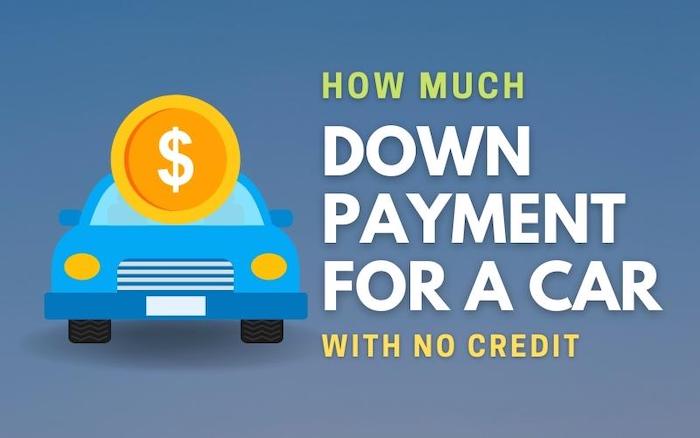What Does It Mean To Refinance A Car Loan?
Auto refinance is a great option, especially if you want to manage your car loan cost. But what does refinancing a car mean? It is the process of obtaining a new loan to pay the one you already have. Note that the refinanced vehicle loan becomes a fresh contract.
Often, a refinanced loan is usually with a different lender. The new lender offers you a chance to accept fresh terms. You’ll typically refinance to save on APR or secure a more affordable monthly payment. Please keep reading to learn what it means to refinance a car loan, plus how it works.
What is Refinancing a Loan?
Loan refinancing gives you the chance to replace an existing debt commitment with one that offers better terms. Through the process, you take out a fresh loan to clear the existing debt. The updated contract also replaces the terms of your old loan. In this way, you can redo a loan to reduce your monthly payment, secure a more convenient payment schedule or obtain a new term length.
A majority of the consumer lenders who provide traditional loans sometimes offer refinancing options. Nonetheless, products such as auto loans and mortgages often have slightly higher interest rates compared to purchase loans. The primary reason for refinancing is to secure a more affordable loan. Many times, refinancing can lower your interest rate.
Imagine you’re a homeowner with excellent credit, and you took out a thirty-year mortgage in 2006. Chances are you’ll be paying an interest ranging from 6 and 7 percent. Currently, highly qualified borrowers can secure interest rates below 4 percent. Accordingly, you could reduce over 2 percent off your interest rate by refinancing the mortgage, saving you hundreds of dollars monthly.
Consider these four common loan refinancing scenarios:
- Reduced monthly payments: Refinancing is a great way to lower your monthly payment due to a longer loan term, reduced interest rate, or both.
- Lower interest rate: With a lower rate and a shorter or same loan period, it often implies you’ll pay less interest throughout your loan term.
- Lengthened loan term: Increasing your loan term will result in lower monthly payments, depending on the interest rate. However, an extended loan term can increase the overall interest charge.
- Shorter loan term: On the contrary, reducing the loan term could increase your monthly payment while lowering total interest.
What’s an Auto Loan?
Before we get deeper into the question of what does it mean to refinance a car, let’s first explain what a car loan is. It’s a type of secured auto loan that helps you to purchase a vehicle. Auto loans work similarly to other loan types.
A financing institution will agree to lend you money for buying a vehicle, and you commit to repay the amount over time, along with interest. You go directly to a credit union or bank to secure an auto loan, or you can use dealer-based auto financing.
Whoever gives you the loan to purchase a car becomes your lienholder or the party owning your debt. Should your original lender decide to sell that loan to another party, that institution becomes your new lienholder.
Keep in mind that your vehicle is the collateral if you obtain an auto loan. As such, your lienholder can repossess your car if you fail to honor your loan payments.
How Does Refinancing a Car Work?
We’ve told you that refinancing a car loan means substituting your existing auto loan with a fresh one. In that case, your new vehicle loan pays off the previous one, leaving you with a new loan agreement. Moreover, you will also have a new Annual Percentage Rate or your interest rate. The updated contract comes with a new loan term, specifying the period within which you must clear the loan.
There are various reasons you’ll want to refinance a car loan. However, it’s often a cost-cutting measure. Moving from a high APR to a low APR in a refinancing deal can save you money. Also, refinancing with an extended loan term is a great way to secure lower monthly payments if you’re currently paying a premium. But this may still cost you more over the loan’s lifespan.
Note that refinancing a car loan can also mean additional charges. It may even dent your credit score. That’s why it’s vital to weigh the pros and cons of auto refinancing before you refinance your car loan. It means that refinancing isn’t an automatic money saver.
Besides, when refinancing your auto loan, you secure a new loan for a new lending institution to pay off your current loan. In other instances, your existing lender can still refinance with you. The objective is to get new terms, APR, or debt.
The Pros Of Refinancing A Car Loan
Refinancing a car loan makes financial sense for some consumers. Here are some of the benefits you can get if you choose to refinance your auto loan:
1. Obtaining a lower APR
It is the most obvious reason you’ll want to refinance your car loan. Consider this if interest rates have dipped since you initially secured your vehicle loan. Even if the new interest rate seems to make a small difference, it can still save you lots of money down the line. You might get lower rates if your FICO ratings have improved since you took your first loan. It means you’ll get better loan offers if you have a good credit score.
2. Securing an extended loan term
Qualifying for lower interest rates is never a guarantee. However, you can consider refinancing with a fresh loan that offers a longer loan term if your monthly payments are expensive. Moving from a thirty-six-month time to a seventy-two-month period will mean paying more in the end. But it will give you reduced prices which might be helpful.
3. Discounts
Many banks provide special discounts for existing customers who refinance an auto loan with them. Contact your current bank to find out if they have special rates on refinancing car loans.
The Cons Of Refinancing A Car Loan
Even if refinancing a car loan is a great way to save money, it may not be a sure win for every auto buyer. There are a few downsides to refinancing your auto loan, such as;
1. It does not appeal to every driver
You should refinance your auto loan if you save money. But it does not make sense to every consumer. For instance, you may not save much if you refinance a loan with a lower APR when you’re almost through with your current loan. The reason is that you’d have already cleared most of the interest. Besides, some lenders have certain refinancing restrictions, such as the age of the vehicle or mileage.
2. It can damage your credit score
You may want to hold off to refinance your car loan if you wish to have your credit score in excellent shape. Lenders often run a credit check when you apply for a loan. It can reduce some points on your credit report. If you are ranging between good credit and excellent credit, refinancing your auto loan can keep you from attaining that better score.
But with all loans, paying on time and in full will improve your credit score. Therefore, taking a ding on your credit score may not be that bad down the line. That’s because it may help you avoid defaulting a loan or missing some payments.
Also, shopping around with multiple lenders won’t harm your ratings any more than if you simply applied with one. Multiple lenders conducting hard inquiries with a short period will just count as one inquiry. Your credit score will only suffer minimal damages.
3. Additional charges
When you refinance a car loan, it may come with charges that make it costlier. Your existing loan may apply a prepayment fee, penalizing you for paying off your loan before time. Besides, you may still be liable for re-registering your loan with the state and transferring the lien, although they are often negligible fees.
Learn More: How To Refinance A Car Loan With Bad Credit And Late Payments?
The Wrap Up
We’ve told you everything there is to learn in answering the question, “what does it mean to refinance a car loan?”. Refinancing a car loan is the process of obtaining a fresh one to clear one or more outstanding auto loans. You’ll refinance your car if you want to reduce your APR of the repayment amount.
Also, refinancing is an excellent way to secure a longer loan term with affordable premiums if you’re struggling to pay off your loans. In such a scenario, the total amount you pay will increase because you’ll pay interest for a more extended timeframe. But you must show the lender that you have an excellent credit score and you can repay the debt.




